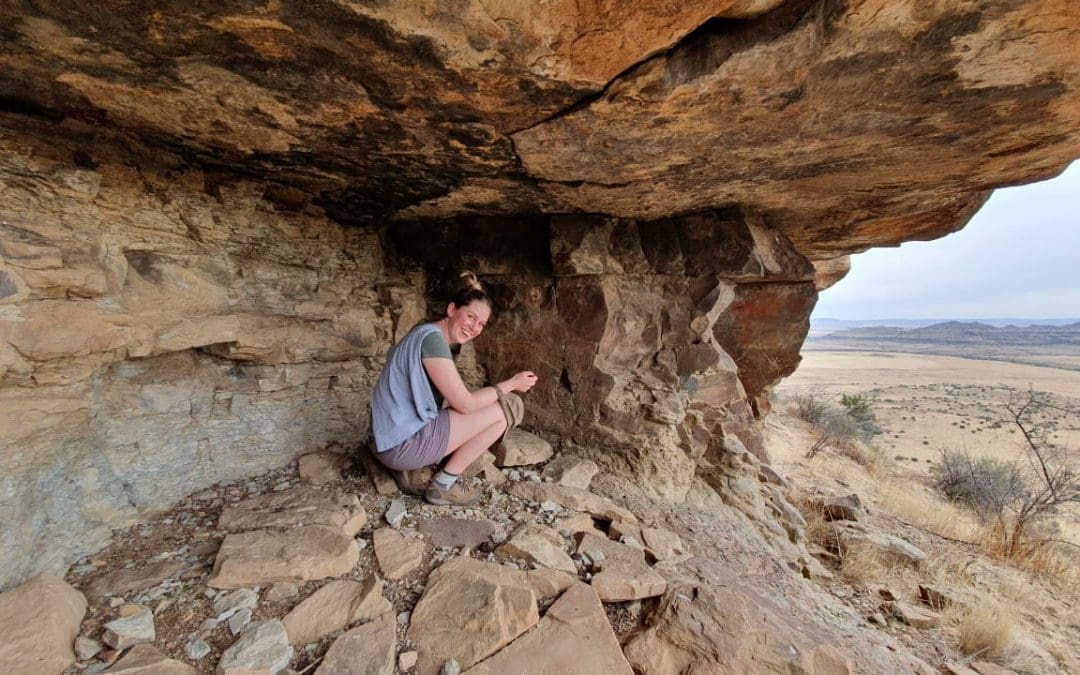 Liezel (Elizabeth) Rudolph obtained her Geography BSc and Honours degrees at the University of Pretoria, and a MSc at Rhodes University. She also has a PGCE from UNISA, which allowed her to teach Geography at Abbott’s College in Pretoria for a few years. She is currently in the final stages of her PhD (also in Geography) at the University of Fort Hare. She currently lectures Geomorphology at the University of the Free State. Her postgraduate research focussed on glacial and peri-glacial landforms and their response to (past and present) climate change. These studies afforded her opportunities to visit the research stations on Marion Island and in the Antarctic, working with SANAP-NRF funded programmes in geomorphology – Landscape Processes in Antarctic Ecosystems and Sub-Antarctic Landscape-Climate Interactions.
Liezel (Elizabeth) Rudolph obtained her Geography BSc and Honours degrees at the University of Pretoria, and a MSc at Rhodes University. She also has a PGCE from UNISA, which allowed her to teach Geography at Abbott’s College in Pretoria for a few years. She is currently in the final stages of her PhD (also in Geography) at the University of Fort Hare. She currently lectures Geomorphology at the University of the Free State. Her postgraduate research focussed on glacial and peri-glacial landforms and their response to (past and present) climate change. These studies afforded her opportunities to visit the research stations on Marion Island and in the Antarctic, working with SANAP-NRF funded programmes in geomorphology – Landscape Processes in Antarctic Ecosystems and Sub-Antarctic Landscape-Climate Interactions.
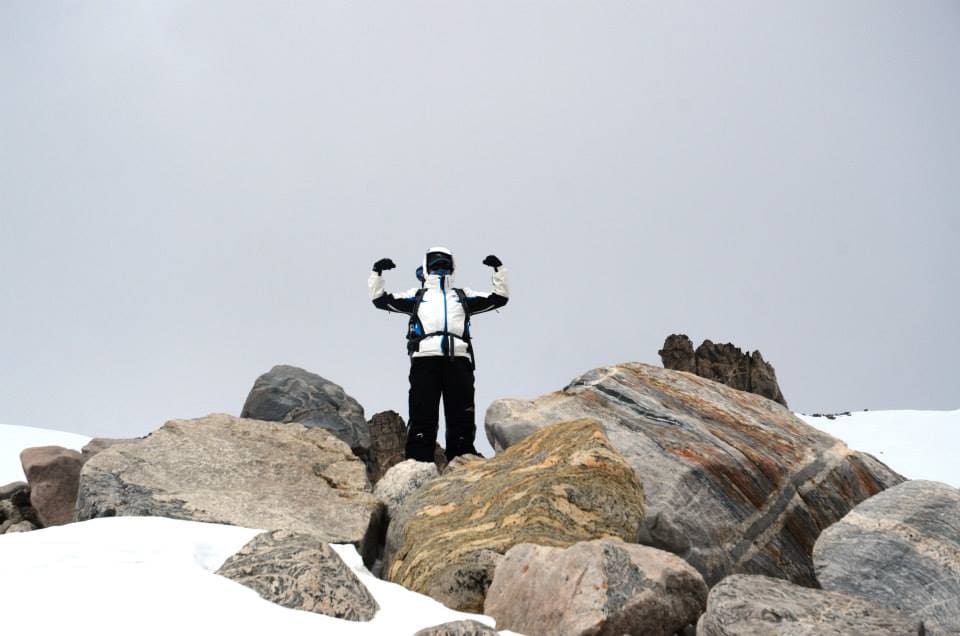

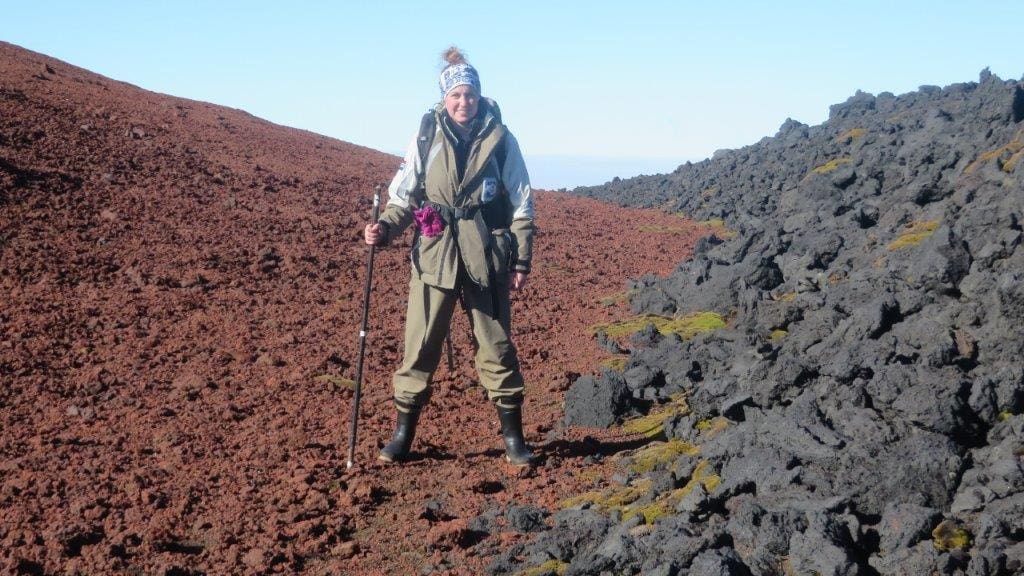
Where you come from where did it all started
I grew up in Pretoria. I never knew what I wanted to be when I grow up – all my friends had career aspirations, but I had interests. I liked variety and the thought of having one, predictable job for the rest of my life scared me endless. I had a keen interest in earth and physical sciences, but I also really enjoyed the arts and design. However, I was neither a Newton nor a Michelangelo at school and the prospect of either as a career path did not sit quite well with me. By the time I finished school I could still not decide on a single career and nothing in the university catalogues seemed to tick all the boxes. So, by process of elimination, I crossed out everything that sounded boring or would involve living creatures (I faint at the sight of blood), and the only thing that was left was Geography. I should’ve known – it’s a science that allows, no, encourages, variety of thought and expression. But I didn’t end up in research straight away. After I finished my Honours in Geography, I taught high school for a few years before returning to full-time studies to pursue a Masters. During my Masters though, I truly missed teaching. There’s something magical about sharing your passion on a subject with young people, and them getting equally excited about it. Its then that I realised a career where I can actively pursue my research interests, and teach, would be my dream job. I don’t believe I could’ve reached this realisation on my own. I had many mentors (parents, teachers, bosses, supervisors) who could lead, inspire and guide me. Through my post-school adult years, I didn’t always know how things will play-out, but I stuck to things I enjoyed and tried to do everything to the best of my ability. I could have followed a more predictable career path, but I may not have been so excited about it, as I am about what I get to do now. I am now lecturing Geomorphology at the University of the Free State and pursuing a PhD in Geography which, on top of everything, is on a topic I’ve been fascinated with since I first read a short story in my English class, at age 11 – glaciers.


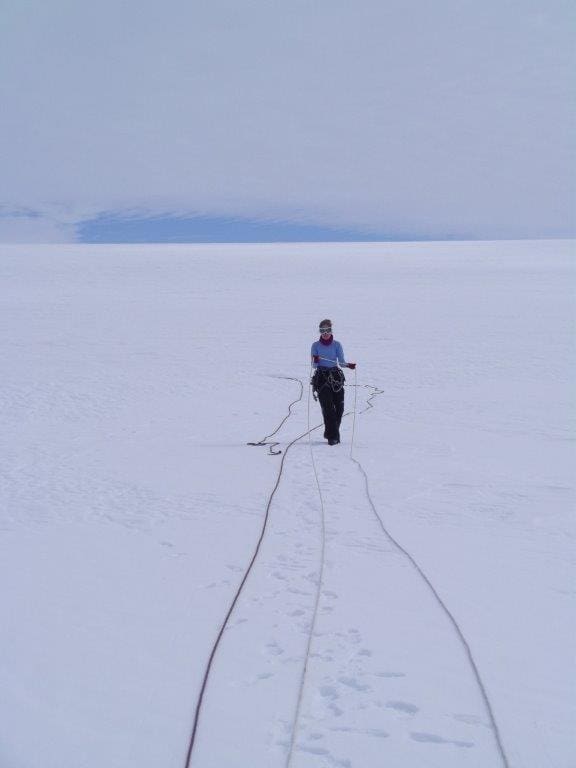
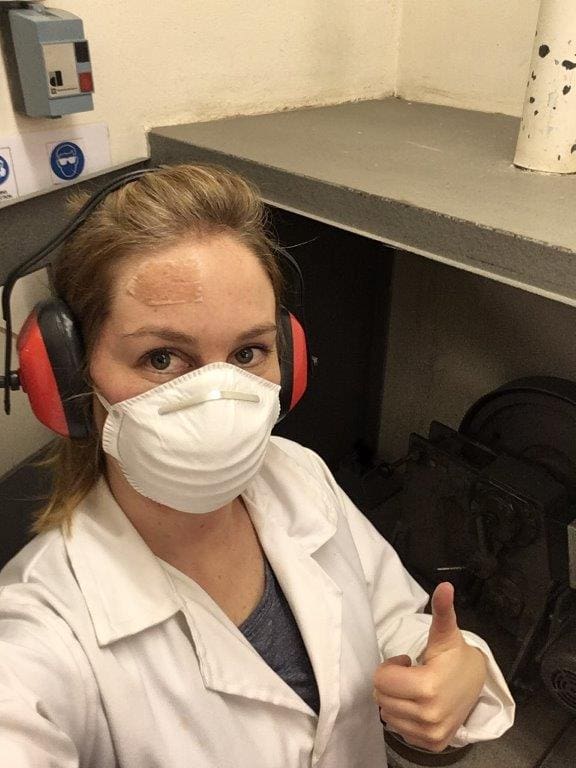
Why you love your career in science?
It never grows old. With new discoveries come a flood of new unanswered questions. It pushes your mental limits and if you like that sort of challenge, you won’t easily get bored. Geography, especially, allows you to think both critically and creatively – it’s like playing a game with rules, but you are allowed to invent new rules. It allows you to visit amazing landscapes (if you’re a Geographer) and meet new and interesting people. Perhaps the best part of is, that it allows you to explore something you are very curious about, and you get to share your findings with an audience that are interested. At the same time, you benefit from what others have discovered about their own curiosity. It’s a constant learning process. In my experience I’ve gotten to work with incredible minds in the Southern African Geomorphology community, and have had the privilege to meet world-class scientists form other fields within the greater SANAP community – all who very passionate about their research fields and to whom I owe much of my passion for science. I am currently serving on the Association of Polar Early Carer Scientists’ South African National Committee (APECSSA), which has awarded me the opportunity to meet other early career scientists, not only from the Earth Science field, but from the Ocean-, Biological-, Botanical- and Space-physics sciences, to name a few. I don’t know of many other careers that would you expose you to such a variety of people and places.
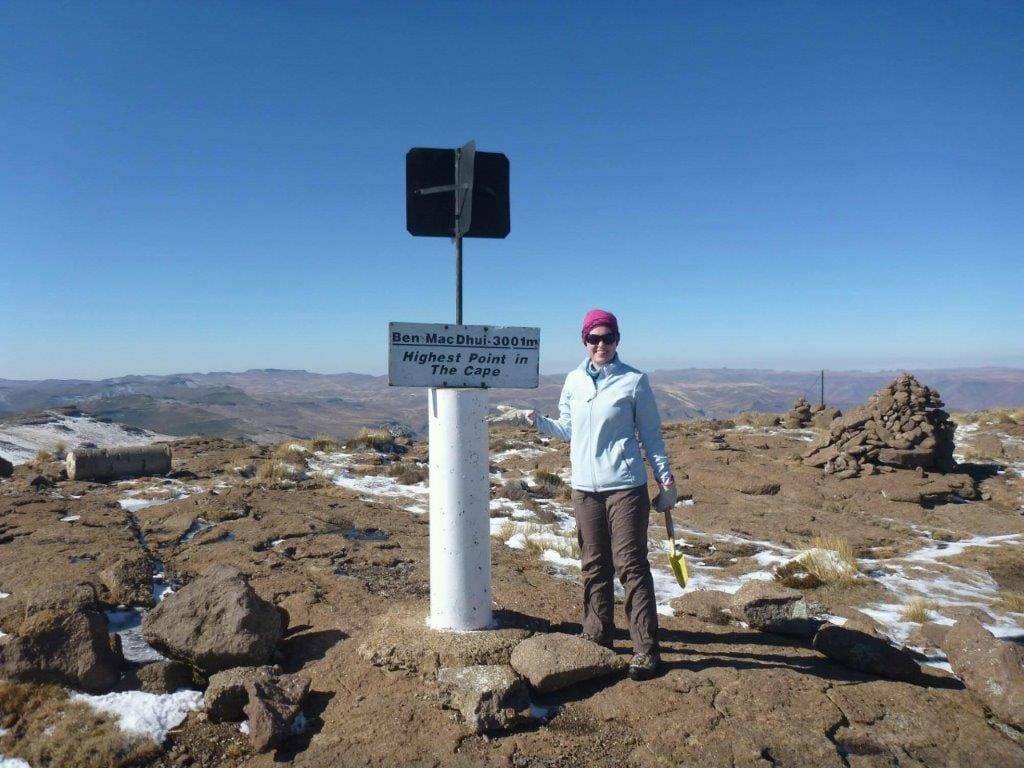


“Science is like art, perhaps with a few more rigorous guidelines, and it allows you to draw on your own unique talents – just like an artist has a specific style. So, you should play by the rules, but you don’t have to fit a mould. Find mentors and listen to their advice. Make your own decisions and take responsibility for yourself. Don’t do anything halfies – finish what you’ve started and do it properly, or leave it all together. I believe that no time spent doing something well, is ever time wasted – experience is what makes us human. People will always be more important than science, so value your personal and professional relationships.” – Liezel
Links: google scholar: https://scholar.google.co.za/citations?user=lwGJSqAAAAAJ&hl=en Facebook: https://web.facebook.com/apecssa/ ; https://web.facebook.com/sanaplci/ Twitter: @Apecssa; @sanaplci Interview: GrootOntbyt /GrootFM 90.5, a community radio station in Pretoria. Interview: at Aktru research station, in Siberia. Article: Early glacial maximum and deglaciation at sub-Antarctic Marion Island from cosmogenic 36Cl exposure dating
Text and Images: Liezel Rudolph

